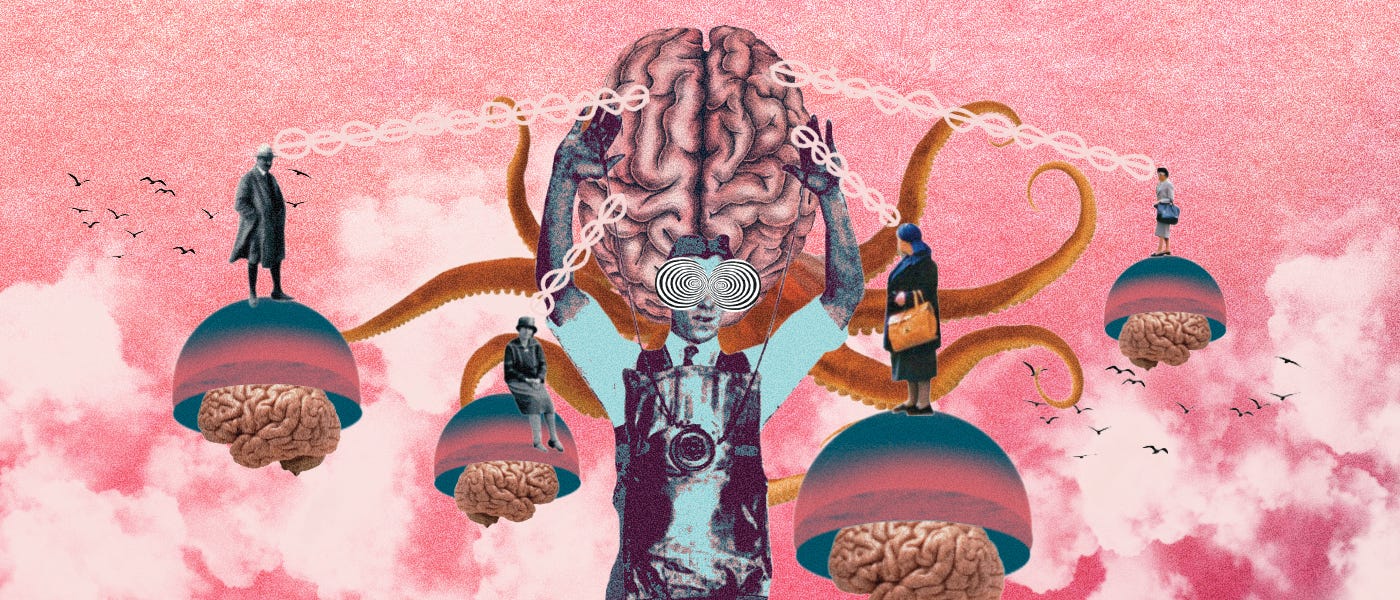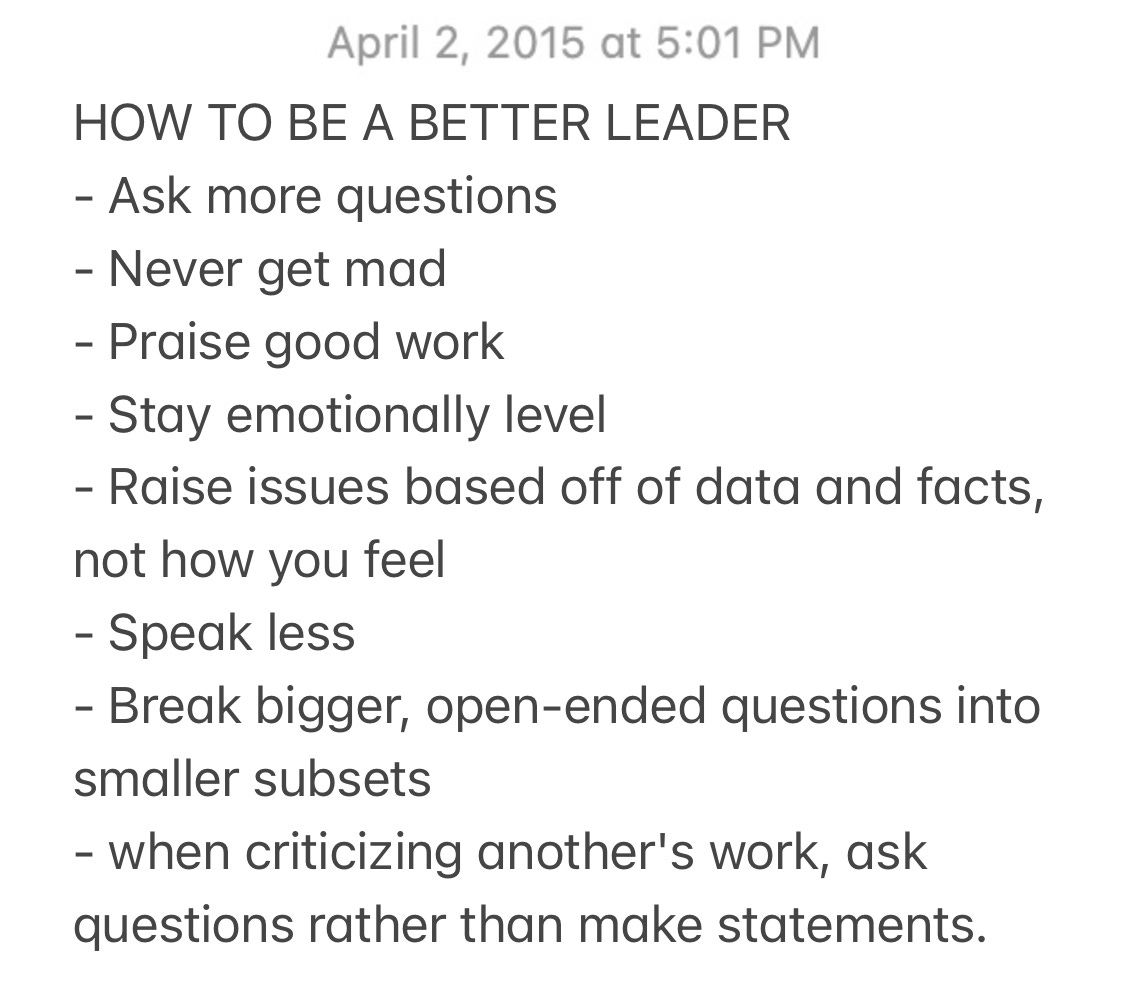Winning Friends, Influencing People, and Doing the Right Things for the Wrong Reasons

First published in 1936, How to Win Friends and Influence People is one of the most popular self-help books of all time, widely considered a pioneer of the genre. It’s also a book written by a psychopath that tells you that the main reason to be nice to others is so that you can personally benefit.
Here is just some of what the author, Dale Carnegie, claims you can get by following his advice: raises, promotions, and more pliant customers; better-behaved children; generous gifts from people besotted with your charm; and the ability to put down strikes without paying your workers more. (This last point is brought up repeatedly—apparently labor strikes were a major concern in 1936!)
Here are some concepts that never appear in this book: closer friendships, a more integrated sense of self, more intimate romantic relationships, or the ability to use your influence to achieve positive things for the world.
How to Make Friends and Influence People may have “friends” right there in the title, but it isn’t really about making friends at all. This quote from John D. Rockefeller, which appears on the second page, sets the tone for everything that follows: “The ability to deal with people is as purchasable a commodity as sugar or coffee,” he allegedly said. “And I will pay more for that ability than for any other under the sun.”
Like a textbook psychopath, Carnegie has an outrageously inflated opinion of himself. Throughout the book, he repeatedly emphasizes that the key to getting people to like you is to be modest and to not talk too much about yourself. But he doesn’t follow his own advice at all. The tone is set in the comically arrogant introduction, a “guide” to reading the book that serves mostly to lecture the reader and emphasize how smart and important Carnegie’s supposed insights are.
Apparently, just reading this book like a normal person isn’t enough. No, Carnegie says, you must reread it at least once a month. You should also keep it in a prominent position on your desk so that it’s never far from your mind, and so that everyone who enters your office sees it. At one point, he even suggests that students should be taught his principles in school, instead of “wasting time” on subjects like geography and foreign languages.
Also like a textbook psychopath, Carnegie has a bizarre and comically unrealistic mental model of human behavior. Among his many outrageous claims are:
That most parents never praise their children and raise them exclusively via criticism and yelling
That he is often the only person who remembers his friends’ birthdays
That it’s common for people to fake insanity just to feel important
That it never occurs to the average man to compliment his wife or even smile at her
That the most common technique used by salespeople is to cajole and lecture prospective customers about their product’s obvious superiority
That many employers, faced with an underperforming employee, will simply fire them on the spot instead of first trying to tell them what they’re doing wrong and how they can improve
That one time, after he idly complimented a bank teller’s hair, the man was likely so excited that he ran home to tell his wife all about the compliment and was probably still thinking about it as he went to bed that night
Needless to say, in many of these cases, Carnegie is able to have a major impact on someone’s life by giving them what should be obvious advice. The hectoring salesperson starts to actually listen to his prospective customers’ needs and, what do you know, he makes more sales. The boss tries giving his employees constructive feedback instead of just firing them the moment they do something wrong and, what do you know, productivity goes up. And the man who never smiles at or compliments his wife? Get M. Night Shyamalan on the phone, because in a shocking twist, the man’s marriage gets much better once he tries the groundbreaking strategy of… being a little nicer to her.
So, does that mean I think How to Win Friends and Influence People is a bad book? Amazingly, I don’t. Not all of Carnegie’s advice is quite as obvious as the examples above, and even when it is, sometimes all people need is to hear obvious advice repeated many times. If you can get past the bizarre examples and the frequent citing of suspiciously anonymous (but totally real!) “experts,” tips like “express your appreciation for people” and “ask questions instead of making arguments” are good pieces of advice to follow. It’s just that they’re wrapped in an oddly disingenuous framework, one that sees others not as fellow people with whom you might form a real connection, but as a means to use towards your own ends1.
Carnegie is aware of this pattern, but he can’t quite escape it. You can see him wrestling with this in the text: he constantly tells the reader to do things for insincere reasons, only to immediately add some version of, “but don’t be insincere about it!”
Take, for example, the book’s first principle, “Become genuinely interested in other people.” Not bad advice, I suppose. But the chapter doesn’t actually teach you how to develop this interest—understandably so, since I’m not sure how such an interest could be easily taught. Instead, Carnegie tells you how to fake it: ask people questions, use an enthusiastic tone when speaking to them, remember their names, etc.
Although Carnegie frames his advice in a particularly transactional way, this incongruity isn’t entirely his fault. This dilemma is, on some level, inescapable: it’s easy to teach people how to act, but it’s almost impossible to teach them how to feel.
That’s the bad news. Here’s the good news: if you act the right way, I’m not sure how you feel actually matters.
There’s a well-known story from the early 2000s about a neuroscientist named John Fallows who was studying the brain scans of psychopaths when he came across a scan that was, in his words, “obviously pathological,” with visibly low activity in the brain regions linked to morality, empathy, and self-control. The predictable twist: the scan turned out to be his own. This guy had studied psychopaths for decades, only to discover well into his fifties that he was one.
Or at least, that he resembled one. Psychopathy isn’t a formal diagnosis, and there’s no definitive test for it; it’s more of a spectrum, or maybe even a social construct. The best you can say is that Fallon is genetically predisposed towards high aggression and low empathy. He identifies as a “pro-social psychopath,” someone who struggles to feel empathy for others, but still mostly behaves as if they do. As Fallon describes it, he may have a hard time feeling true empathy, but he can still reach conclusions about the right way to behave using reason and logic.
Reading about him, I thought, weirdly enough, of my recent decision to stop eating octopus. They’re too alien for me to feel any real empathy for, but they seem so intelligent that I can’t justify continuing to eat them, even though they’re extremely delicious2. Perhaps that’s essentially how Fallon feels about other people. And as long as he ends up doing the right thing, who cares how he got there? After all, it’s not as if empathy is the most reliable guide to good behavior either. The world is full of people doing the wrong thing for the right reasons.
I’m not saying the ends justify the means. I’m just saying that if I could only get one right, I’d pick the ends every time
We’re often more critical of people who are like us than we are of people who are totally different. It’s why so many leftists spend more time yelling at neoliberal Democrats than they do at Republicans, and it’s why our own families annoy us way more than other people’s. And I think it might be, a little bit, why I find Dale Carnegie so offputting.
Here’s where I make my confession: I first read this book eight years ago, and at the time I didn’t notice any of the stuff I’ve spent this entire essay so far complaining about. Back then, I thought How to Win Friends and Influence People was a decent, if somewhat boring, book, and I made an effort to put some of its advice into practice.
I was 24, and I was, for the first time, truly motivated to do some real work on myself and my relationships, for my own semi-selfish reasons: I was starting a company, and I realized there was no way it would succeed unless I grew up a lot, and fast. Previously, the biggest consequences of my immaturity and personal foibles—my occasional domineering argumentativeness, the delight I could take in casually putting someone down with a cutting (but hilarious!) remark—had been that I sometimes hurt someone I cared about. Now the consequences had expanded to include the potential failure of my new company. And though it’s a little embarrassing to admit it now, at the time, that latter consequence felt like a much bigger deal.
I don’t think I’m alone in having found my way to personal growth through this kind of achievement-oriented motivation. When you’re young and obnoxious, working on your emotional development can seem a little too woo-woo and, let’s face it, kind of lame. It’s sometimes helpful to reframe that kind of growth away from something spiritual and into more of a tangible skill, especially one you need to get better at for practical reasons.
The thing is, no matter what path you start from, these roads usually all end up leading to the same place. In time, you often find that your original, more outward-facing motivation fades away, sneakily replaced by a more intrinsic one without your even noticing. Or as they say in AA: it’s easier to act your way into a new method of thinking than it is to think your way into a new method of acting.
Early on in the How to Win Friends and Influence People, Carnegie makes the point that the only way to reliably get someone to do something is to make them genuinely want to do it. Perhaps that’s what he’s doing here: wrapping a guide to becoming a kinder and more caring person in the language of personal gain, so that the masses want to follow it. That’s the positive way of viewing this book, as a kind of Trojan horse.
For the negative view, well, all you have to know is that Charles Manson used what he learned from Carnegie to manipulate women into killing on his behalf. But most of us aren’t going to become Manson, no matter how many self-help books we read or how many times we listen to the White Album. Most of us are going to find our way to the right motivations eventually—even if we only picked up this book to find out how to break strikes.
The disingenuousness even extends to the author’s name: he was born Dale Carnagey, but changed the spelling of his name in the hopes that people would assume he was related to Andrew Carnegie.
There’s an extended digression I could get into here about the ethics of eating animals and whether their intelligence should really be a significant factor in that decision, but I’ll save that for another time.





